Jason Micheli's Blog, page 63
October 4, 2023
The Law is Gospel

Tamed Cynic is a reader-supported publication. To receive new posts and all content, consider becoming a paid subscriber.
The Old Testament lectionary text for this coming Sunday is Exodus 20:1-4, 7-9, 12-20 where God meets Moses on Mount Sinai and gifts his Israel with the Ten Commandments.
In order to read the torah in a gospel register, Christians must remember that the events of the Exodus generally and the giving of the law especially sequentially follow but logically precede the events narrated in the Book of Genesis.
The Book of Esdras professes plainly, “It was us that you created the world.”
The order is important.
Creation serves the covenant; the covenant does not serve creation.Thus, even though the commandments come later at Mount Sinai they are a priori in the creative aim of God. When God speaks winged creatures into existence, when his word hangs the stars in the sky and alights upon the dark waters and brings forth life, God already has in mind his people, Israel and the church.
God creates precisely in order to have unto himself a peculiar people ordered according to a particular polity— torah, law. Indeed the initial act of creation is itself an instance of law. God said and there was; that is, God commands the world to be and the command is obeyed, and the event of obedience is the existence of the world. God creates the world by utterance of moral intention for beings other than himself.
Thus God’s creating of the world is agency of the same sort as the torah by which he creates Israel.
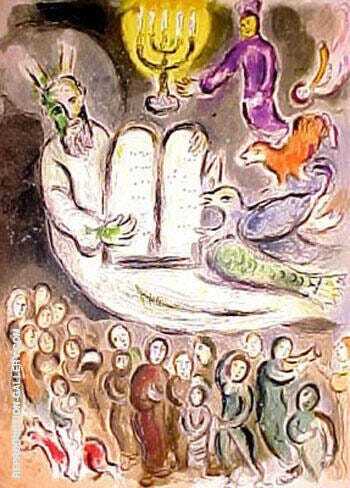
As Robert Jenson notes:
God speaks Torah even where there is nothing, and even so is obeyed; the existence of creatures is exactly this obedience. To hear God’s command is, therefore, to be refreshed in my very being: “My delight is in the Lord’s Torah, and thereon I meditate day and night.”
In his Large Catechism, the Protestant Reformer Martin Luther teaches that “anyone who knows the Ten Commandments perfectly knows the entire scriptures.” Surely this is a ridiculous assertion unless God’s act from creation to Kingdom is one of moral intention.
God created in order to have a people ordered to a polity.
Creation’s purpose is the particular covenant with a peculiar people ordered to a polity stipulated in the torah. That this obedience is the occasion for our existence reveals the nature of sin. “It would seem to follow,” Jenson writes, “that not to obey God’s commandments is not to be.”
To sin is to cease to be.October 3, 2023
A Pastor isn't a CEO
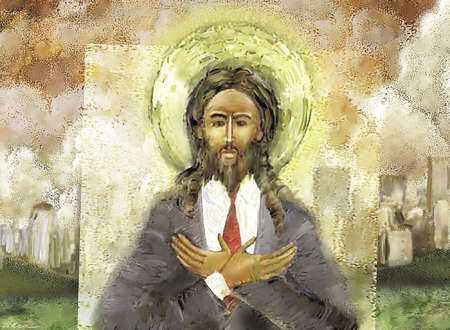
Tamed Cynic is a reader-supported publication. If you appreciate what we do, consider becoming a paid subscriber and get access to all content.
Here is a conversation I recently had with my friend Tony Robinson about the piece he wrote for Mockingbird, “A Pastor isn’t a CEO.”
Here’s an excerpt I shared in the recording:
For me job #1 was “preacher and teacher of the faith,” a distinction that makes all the difference in the world. As I’ve mentioned before, my model of ministry is a rabbinic one, the kind Jesus himself modeled and endorsed. Minister as a “community-based teacher or scholar.” You teach and interpret the faith in the midst of a community and for the times in which you live. I loved that job. I could do most of the others with some degree of competence because I was centered in that role as a “theologian-in-residence,” providing a theological center in the life of a congregation.
Lang’s list seems very much a list of tasks.
But what funds a person to perform those tasks? What unifies the many roles? For me it was being “a preacher and teacher of the faith.” That job meant I had to be alive to Scripture and the Gospel, going deep in that living tradition, standing before God.It meant I had to read, to study, to be engaged with the challenges and events of the times. Barth’s famous maxim about pastoring is that ministers are to have the Bible in one hand, the newspaper in the other. All of that, in my experience, helped combat burnout because you were always learning, exploring, going back to the sources, listening deeply or trying to.
 Get more from Jason Micheli in the Substack appAvailable for iOS and AndroidGet the app
Get more from Jason Micheli in the Substack appAvailable for iOS and AndroidGet the app
October 2, 2023
Revelation Study Tonight
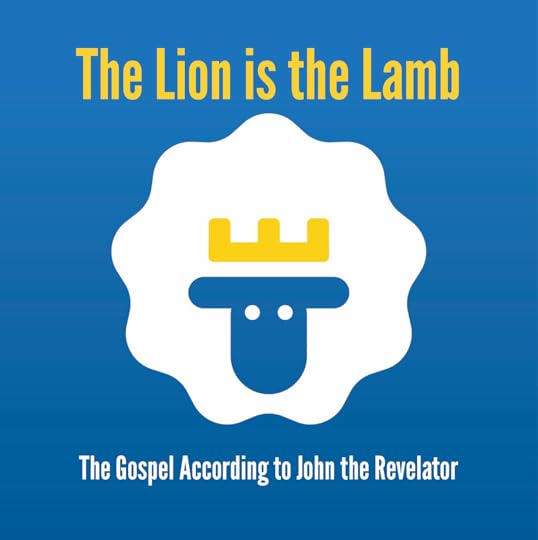
Tamed Cynic is a reader-supported publication. If you like what we do, consider becoming a paid subscriber.
Hi Friends,
I don’t mean to spam you with two messages in one day, but whenever I put this sort of information at the top of an unrelated message folks don’t notice.
Reminder, we will gather at 7:00 for our Revelation study. On deck tonight is Revelation 12-15.
Links, and flag this email because, like the Dude, the links abide to future sessions:
You can find it at Riverside.
Remember, to use current version of Google Chrome or Microsoft Edge as your browser. And we just recorded in Riverside with Tony Robinson, a certified old guy, and he had no trouble with it.
Or, you can catch the livestream at YouTube too:
The Parable of the Ridiculously Persistent Owner
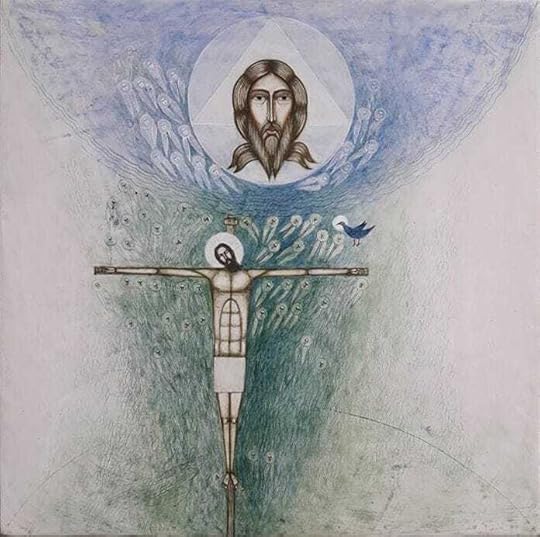
Tamed Cynic is a reader-supported publication. If you appreciate what we do, consider becoming a paid subscriber.
This coming Sunday’s lectionary Gospel is Matthew 21.33-46, a passage frequently titled “The Parable of the Wicked Tenants.”
It’s an astonishingly stupid name for the story Jesus spins.Jesus, without the benefit of a seminary education, is in the Temple preaching:
“This place is supposed to be a house of prayer, but you’ve turned it into a den of robbers. And look, with all your tight-sphinctered, keeping-up-appearances piety, you’ve pushed all the people with actual biblical problems— the poor, the blind, and the lame— to the margins. And you money-changers, you call that a fair price for a goat? Exactly what part of the commandment (If you lend money to any of my people with you who is poor, you shall not exact interest from him) is unclear to you? I’ve seen fairer prices in airport food courts.”
Just to drive the point home, Jesus offers his listeners a sermon illustration. Jesus takes an ordinary innocent fig tree that, so far as we know, never did anything wrong to Jesus, and Jesus gives it the stink eye and hollers with his outside voice, “May no fruit ever come from you again!” And the fig tree, the Gospels report, withered at once.
In response to his arboreal assault-and-battery, Jesus’s listeners start in on his bona fides.
“Just where in the @#$% does he get off, preaching like that?! What divinity school did you say you attended? We liked the last preacher we had a lot better than you?” “No, you didn’t either,” Jesus replies, “Your last preacher was John the Baptist, and you all killed him and served him for dinner. It’s not the messenger that’s your problem. It’s the message.”
And while they chew on that truth bomb, Jesus, proving he’d never pass the United Methodist Board of Ordained Ministry, doubles down on their offense and spins the rudest of all his parables:
“Once upon a time, before he bought Twitter to save democracy Elon Musk bought some land up in Napa because he fancied the notion of playing the vintner one day after he’d cashed out his stock options and retired early. When it came time for harvesting the grapes, the vineyard owner sent some of his interns up north with a message, and dammit if the fruit pickers didn’t beat one, kill another, and stone still another. The rich guy, though, he’s an odd one. The owner of the vineyard doesn’t react the way you might expect. He doesn’t call the police, cancel them on Twitter, or take his helicopter up to Napa to take matters into his own hands. No, he hands over another message and sends another company car full of overachieving interns to the vineyard. But the fruit pickers do the same to them too. They zip tie them to the grapevines and beat the life out of them. Fool me once, fool me twice— would you believe this fat cat didn’t learn his lesson with these rotten, no-good workers? Seriously, he tells himself, “If I give the message to my son, if I send my son up there, surely, they’ll listen to him.” As soon as they hear the kid’s car coming up the gravel drive, the fruit pickers look to each other and say, “This awol vineyard owner is never going to come around here. If we off his son, we can have this place to ourselves.” So they take him across the property line and kill him.”
“Now,” Jesus says to his listeners, “What do you reckon this father will do when he learns they’ve murdered his son in a shameful fashion and left his body in the brush, forsaken like trash? Messenger after messenger, what do you guess this father will do after they’ve killed his ultimate message-bearer?”
“Surely, he will put those wretches to a miserable death!” they answer so fast not a one even raised their hand.
And that’s when our Lord smacks his forehead. “You mouth-breathing morons,” Jesus responds, “you pick apart your preachers but you don’t even know your scripture. It’s right there as plain as the ugly on your face, “Psalm 118: The stone you all rejected has become the cornerstone of the masterpiece the Lord is building.”
In other words— in light of what God’s determined to do, all our refusals and rejections are only provisional. “I’ve made a decision for Christ,” we say. No, God has made a decision for you in Jesus Christ and, sooner or later, by hook or by crook, God’s gonna pull it off.In the ancient Church, Roman persecution provoked an ecclesiastical debate over the efficacy of sacraments performed by preachers who had recanted their faith in the face of torture. Does the eucharist, for example, depend upon the preacher’s strength of faith or moral integrity in order to be a means of grace? With St. Augustine, the Church answered in the negative with a Latin phrase.
Ex opere operato.By the word worked.That is, the sacraments remain effective means of grace because it is not the preacher at work in the sacramental work but it is the Living Word of God. It is the Living Word of God that is effective and creative, attaching itself to water and wine and bread and the unimpressive, inadequate words of a preacher. From his jail cell, the Apostle Paul admonishes Timothy that the only thing a preacher of the Gospel has for which to be ashamed is in poorly handling the word of truth— that’s it. Tell me in the narthex that the sermon didn’t make you feel good or give you practical help for Monday, I won’t take offense. Say I stepped over the line with a joke or that a story didn’t land, okay— there’s always another Sunday. Fire off an email and accuse me of being a liberal or a conservative (Oh my Lord, I get both every week). But go ahead, it’s no sweat. I won’t give it two seconds worry. I can take the hits. After all, Jesus says he’s got a cross that’ll fit my back just fine. Gripe until your fingers cramp up, I’ll sleep just fine.
But—
Tell me I haven’t handed over the unfettered Word of God, tell me I haven’t delivered the message, I should be ashamed of myself, Paul says.“God is so unassuming in the world,” Karl Barth says, “But so revolutionary in relation to it.” He means that the way the Living God makes himself known in the world, brings something out of nothing, gives life to the dead, and calls into existence the things that do not exist is through ordinary words, the words of ordinary messengers.
Declares the prophet Isaiah:
“From this time forth, I make you hear things, new things, hidden things, which you have not known… before today you have never heard them.”
I don’t know why our Lord keeps sending message after message after message to hard-headed people like you. Nor do I know why he chooses ill-equipped people like me as his primary mode of communication. No, that’s not nearly offensive enough. I don’t know why God chooses ill-equipped messengers like me as the primary way he is active and at work in the world. But I do know that the Word of God says that it is the will of God that all shall be saved.
That’s the Epistle to Timothy.
The Word of God says it is the will of God that all shall be saved. Therefore, all our stubborn, stupid, short-sighted “no’s” are bracketed by a bigger “Yes” that God is hell-bent on speaking to us in Jesus Christ.That the word is a living word, that the word of God is unfettered and able to work not only in spite of me but apart from me, that God is hell-bent on being gracious— that gives this weary messenger the hope to go on.

It’s a testament to the depth of our sin— what the Protestant Reformers called our total depravity— that we make the wicked tenants the subject of Jesus’s parable. For that matter, as Robert Capon points out, we get so preoccupied with the supporting cast that we misname nearly all of Jesus’s stories.
The Parable of the Prodigal Son— No, it’s not about the rotten kid brother. It’s about the Father who’s already forgiven his children before either of them do an ounce of repenting.
The Parable of the Lost Coin—No it should be called the Parable of the Crazy Lady Who Was Willing To Turn Over Her Whole House To Find A Single Worthless Nickel.
The Parable of the Lost Sheep— Nope. It is really a parable about a Shepherd who refuses to abide by our expectations for good and responsible shepherding.
We’re so wrapped up in ourselves we miss the main character.
In the first verse alone, Jesus credits the Vineyard Owner with a whopping eight verbs.It’s not the Vineyard Owner who’s fooled again and again and again.
It’s every one of us who think this parable is about the wicked tenants.
No, it’s about the Owner with a capital “O.”
It’s about the ridiculous patience of God.
It’s about the gracious persistence of his Word.
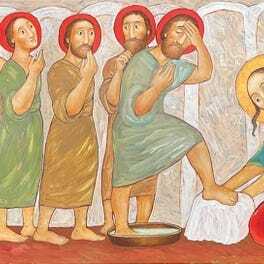
“Now,” Jesus says to his listeners, “What do you reckon this father will do when he learns they’ve killed and forsaken his son?”
“Surely, he will put those wretches to a miserable death!”
Wrong again.
No sooner had we nailed his Son to a tree than the Lord sends out another messenger.
“This Jesus that you crucified and killed,” Peter preaches, “God raised him up, having freed him from Death, because it is impossible for him to be held in Death’s power…Repent and believe.”
Ours is a Loquacious God.
And he’s not squeamish.
There’s no body count the Lord’s not willing to rack up in order to be in conversation with you.
Which, as grisly as it sounds, is good news.
It’s the good news that the good news is not our burden to bear alone.
We really can rest in his grace because ultimately the gospel is his work not ours.
 Get more from Jason Micheli in the Substack appAvailable for iOS and AndroidGet the app
Get more from Jason Micheli in the Substack appAvailable for iOS and AndroidGet the app
September 30, 2023
A Theology of Eating

Tamed Cynic is a reader-supported publication. If you appreciate what we would do, consider becoming a paid subscriber.
In my sermon last Sunday, as an illustration of John’s vision of the systems and institutions of the world in captivity to the Beast, I referenced a NY Times investigation into the child labor practices at the slaughterhouses on the Eastern Shore of Virginia. The story has stayed with me, and it also reminded me of the conversation I had with Norman Wirzba about the theology of eating. A new edition of his book, Food and Faith: A Theology of Eating, has since been published. Unlike books that focus primarily on vegetarianism and hunger-related concerns, this book broadens the scope of consideration to include the sacramental character of eating, the deep significance of hospitality, the meaning of death and sacrifice, the Eucharist as the place of inspiration and orientation, the importance of saying grace, and the possibility of eating in heaven.
So then, I offer this conversation from the vault (six years ago!):
 Get more from Jason Micheli in the Substack appAvailable for iOS and AndroidGet the app
Get more from Jason Micheli in the Substack appAvailable for iOS and AndroidGet the app
September 29, 2023
All Your Sins are Free

Tamed Cynic is a reader-supported publication. If you like what we do, pay it forward and consider becoming a paid subscriber.
Readers here will have noticed I’m in the midst of a series on the Book of Revelation.
Despite the ubiquity of doomsday hucksters and pulpy Left Behind movies, if the gospel is true and the cross is to be trusted as a complete and finished work, then the same refrain which announces the beginning of the work of God in Jesus Christ occasions the Fulfillment, as well as our place in it, “Do not fear.”
The headline the angel Gabriel gives to the gospel abides to its very end.Death need not be feared—no matter the nature of the life that preceded it—because the good news of the gospel is that the character of my life or your life is not the good news.
The god who dies in Christ’s grave never to return is the angry god conjured by our angry hearts and anxious imaginations.
If it’s the devil in the desert who speaks in if/then conditions, then the devil’s chief work in the world is to convince us that our sins are more consequential than Christ’s complete and total triumph over them.
This is why St. Paul in his long argument on the resurrection in 1 Corinthians 15 is so adamant about the absolute necessity of Christ’s empty grave; otherwise, Paul insists, our faith is futile and our hope is pitiful. If the wages owed for our unrighteous ways in the world is the grave, then Christ’s empty grave is the sure and certain sign of the opposite: his perfect righteousness.
His resurrection is the reminder that his righteousness is so superabundant its paid forward for all the wages of our every sin.Thus, there are no wages left to be paid for any of your sins. Easter’s empty grave is the sacrament, the outward and visible sign, that in Jesus Christ you have been prematurely and permanently exonerated. In Christ, God became a goat, separated and forsaken from the Father, left behind in a hastily hewn grave, so that you could be counted among the flock forever. The End, therefore, or just your end, is not an occasion for fingers-crossed fear or fretful hand-wringing because when Christ returns, or you return to him, he will greet you already bearing your every sin in his cross-shattered body.
Thus, all your sins are free.From Good Friday forward, all your sins are free.
There is no cost to any of your sins other than what they cost your neighbor. You can dishonor your father and your mother, if you like. You can forgive somewhere south of 70x7 times. You can begrudge a beggar your spare coin. You can cheat on your wife or covet your friend’s wife. I personally wouldn’t commend such a life but such a life has no bearing on God’s Fulfillment. Such a life has no bearing on how God regards you. Of course, the world will be a more beautiful place and your life will be a whole lot happier if you forgive those who trespass against you and give to the poor, if your love is patient and kind, un-angry and absent boasting. But God loves you not one jot or tittle less if you don’t do any of it.
“It rains on the righteous and the unrighteous alike,” Jesus teaches in the Gospels and, imagining ourselves as the former instead of the latter, we always hear that teaching as the “offense” of grace. But turn the teaching around and you can hear it as Jesus intended for his flock to hear it, a different sort of offensiveness: God will bless you even if you’re bad.
God will bless you even if you’re bad.Again, the god who dies in Christ’s grave never to return is the angry god conjured by our anxious hearts, fearful imaginations.
Don’t get me wrong. It’s not that the good works you do for God and for you neighbor don’t matter. Rather, it’s that even the best good works of a Mother Theresa are a trifling pittance compared to the perfect work of forgiveness gifted to us by the baptism of Christ’s death and resurrection. “For freedom Christ has set you free,” Paul declares to the Galatians. He’s freed you, in other words, from the burden of living up to God’s commands. And he’s freed you from the fear of failing under them. For your performance according to God’s commands, all the accusing oughts and expectations of the Law, there is neither punishment nor reward.
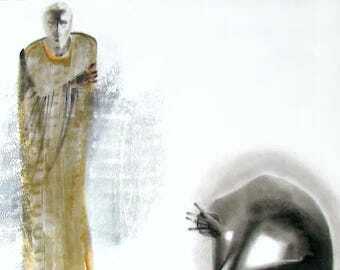
Martin Luther wrote that the Devil’s chief work in the world is to convince us that this or that sin we’ve committed— or are committing— disqualifies us from God’s unqualified grace and his free, no-expiration-date, forgiveness. If Luther was right (and you can take those end times evangelists as Exhibit A), then the Devil is no place more active than in Christ’s Body, the Church.
The Devil’s primary mode of attack comes at believers through other believers. The Accuser gets at us through those freedom-allergic believers who take our sins to be more consequential than Christ’s complete and total triumph over them.You’ll hear such believers insist that the freedom Paul extols is really the freedom for you to be good and obedient, but this isn’t the Gospel it’s cognitive dissonance. Likewise, you’ll hear these tight-sphinctered pious types say things like “Yes, grace is amazing but we mustn’t take advantage of it.” Such holy types are afraid of the freedom the Gospel gives you. They’re worried that if you don’t have to worry about incurring God’s wrath and punishment by your unfaithfulness, then you’ll have no motivation to be faithful, to love God and your neighbor. Without the stick, the carrot of grace will just permit people to do whatever they want, to live prodigally without the need to ever come home from the far country.
As easily as we swallow such objections, I don’t buy it. Speaking just from the mission field of my own life, I can testify that most of the damage I do to myself and to others isn’t because I’m convinced God doesn’t condemn me for my sins but because I fear- despite my faith, I still fear- the judgement I think I deserve. And so I do damage, making others the object of my anxious attempts to make myself look better and be better than I really am. I think this explains why the people against whom we sin the most are the people we most love. They’re the ones who’ve invested the most in us and we in them; consequently, we want to impress them the most and, as a result, they become the ones against whom we most sin. But not even a stranger or your enemy deserves to be the occasion of your project of self-justification; what’s more, no friend or family member can endure the burden of such an expectation.
The hilarity of the gospel, though, is that the news that all your sins are free actually frees you from sinning.Take, as just a rather obvious example, Jesus Christ: the only guy ever on record convinced to his marrow of the Father’s unconditional love. And his being convinced that God had no damns to give led him to what exactly? To live a sinless, self-less life.
That Jesus was without sin was the consequence not of his goodness and perfection but of Jesus’ perfect trust in the goodness of his Father.
In the foolish economy of his love, God has flooded our marketplace with an abundance cheap— no, free— grace, leaving our reliable currency of credits and debits worthless. God’s zeroed out the earning power of sin.That which is free has no purchasing power. God’s de-incentivized our consumption. No longer do we have any reason to window shop and browse around in the sins of others. They’re not worth anything. Nor are they worth anything to us. Our neighbors’ sins do not improve our own futures market. They do not increase by even a dime the value of our own portfolio because in God’s economy of grace our virtue likewise is an empty commodity, as antiquated as bartering with sheep and goats.
If all our sins are free, our virtue is without value.We’re bankrupt, beggars all, no distinction, without any need to put on masks and pretend we’re anything other than ourselves. If all our sins are free, then we’re back in the same position as Eve and Adam before there was a single one of them, without any reason for shame or blame, with no need to hide from one another, free to be seen and to be known, content to be creatures of our three person’d Maker.
 Get more from Jason Micheli in the Substack appAvailable for iOS and AndroidGet the app
Get more from Jason Micheli in the Substack appAvailable for iOS and AndroidGet the app
September 28, 2023
Seeing What Is from What Will Be

Tamed Cynic is a reader-supported publication. If you appreciate what we do, pay it forward and consider becoming a paid subscriber.
Here is the recording from the Mockingbird Book Club conversation I led on Robert Jenson’s little book, A Theology in Outline: Can These Bones Live?
The book itself are the transcriptions from a rare undergraduate course Jenson taught on Christian theology at Princeton University the decade before his death. I began the book club by trying to offer an orientation on Jenson and his work, using Jens’s essay, A Theological Autobiography, to Date.
You can find that essay HERE.
Finally, here is the book’s closing paragraph which I read at the top of the conversation:
In my judgment, theology responds best by trusting in the gospel’s own interior rationality, and then building its own metaphysics, its own vision of reality. This endeavor has been going on for some time actually. One point guard in the endeavor might be Wolfhart Pannenberg, who has elaborated an entire system of metaphysics (and indeed an entire philosophy of science to go with it) on the principle that traditional metaphysics draws its vision of what is from what has been, whereas a distinctively Christian metaphysics must draw its vision from what will be. Indeed, that is what we have been doing all along here in these lectures. We have taken the claims of Christian doctrine with absolute seriousness: that the creator of all things is triune, so that his life has a specific structure from which the structure of everything else follows, and that one of the Trinity, one of the three, is the resurrected Jewish Messiah, Jesus.
 Get more from Jason Micheli in the Substack appAvailable for iOS and AndroidGet the app
Get more from Jason Micheli in the Substack appAvailable for iOS and AndroidGet the app
September 27, 2023
In Christ Alone, Christians CAN be Christians
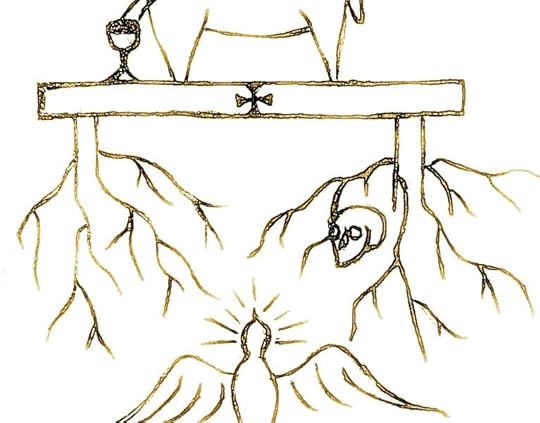
Tamed Cynic is a reader-supported publication. If you like what we do, pay it forward and consider becoming a paid subscriber.
Philippians 2.1-13
The Apostle Paul’s letter to the Philippians is beloved for its many memory verses:
“I can do all things through Christ who strengthens me.”
“Forgetting what lies behind and straining forward to what lies ahead, I press on toward the goal for the prize of the upward call of God in Christ Jesus.”
“May the peace of God, which surpasses all understanding, guard your hearts and your minds in Christ Jesus.”
Inarguably, the most enduring of these verses is the Christ hymn in this Sunday’s passage:
“Christ Jesus, who, though he was in the form of God, did not regard equality with God as something to be exploited, but emptied himself, taking the form of a slave, being born in human likeness.
And being found in human form, he humbled himself and became obedient to the point of death— even death on a cross.”
The soaring language and comforting sentiment of much of Paul’s epistle obscures the occasion which prompted the writing of it. Paul writes from a prison cell to his most beloved church because they are coming apart over what divides them. The matter is urgent.
The alarm many observers sound about our current political situation is exactly the emotional register with which you should read Paul’s letter to the Philippians. The believing community in Philippi is split between two leaders— notably, two female leaders— and the divisions between the two parties have hardened to the breaking point. When Paul, in the passage just before today’s text, urged the congregation at Philippi to “live your life in a manner worthy of the Gospel of Christ” it was not a generic encouragement. It was Paul, as a leader, calling out the elephant in the room.
With the discord and hostility between them, they were not living their life together in manner worthy of the Gospel.Just as Martin Luther King, Jr., wrote from his Birmingham jail cell to address the lack of unity in the Body of Christ, exhorting white Christians to obey their baptismal vows and stand alongside their black brothers and sisters in Christ, Paul writes from his Roman jail cell to plead with the Philippians to reconcile the divisions between them.
On the one hand, we might take comfort from the Apostle Paul’s epistle today, realizing that, as unprecedented and alarming as our current cultural and political moment feels, bitter division and deep discord are nothing new under the sun, and if there is any help to be found, our help is in the name of the Lord.
On the other hand, the Apostle’s letter should chasten us, for a lack of unity among Christians signals an impoverishment of the Gospel.
Simply (or, not so simply), a life worthy of the Gospel of Jesus Christ demands unity in the ranks of believers.
As the Christ hymn makes clear:
Rightly understanding Jesus Christ is the basis for unity among Christians. If the Gospel has not yet born the fruit of unity among believers, then perhaps the Gospel has not yet been received. If there is such division among believers in Christ, then maybe those “believers” believe a good many things about God (the goodness of God, the power of God), but if those believers still lack unity then they do not yet know the grace of God.For the Apostle Paul, external opposition is unavoidable for a Church true to its calling in this time between the times; however, internal discord indicates a Church that is not centered on the Gospel.
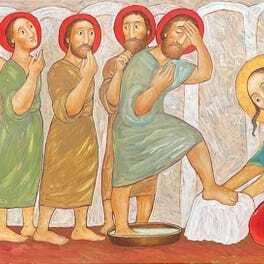
With chapter two, the Apostle Paul gets to the matter at hand and makes his appeal to unity, and he begins— it’s important to point out— with the little Greek conjunction, εἰ, which can mean if or forasmuch as.
Very often translators will render it with if, making the entire passage conditional rather than confident.
As the NRSV translates it:
“If there is any encouragement in Christ…. if there is any consolation from love…. if there is any sharing in the Spirit.”
But as many biblical interpreters point out, Paul’s use of the conjunction alongside the word “therefore” eliminates any contingent or conditional quality to the sentence. “Since” or “because” rather than “if” better captures the basis of Paul’s appeal.
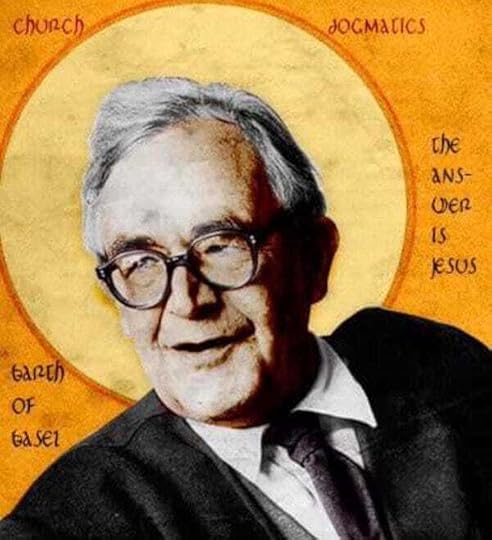
As Karl Barth translates it:
The distinction is between possibility and actuality. That is, the difference between human potential, in the case of the former, and the Living God’s power, in the case of the latter.“Therefore, since there is encouragement in Christ, since there is comfort afforded by his love, because there is sharing in the Spirit, because there is mercy and compassion, make my joy complete: by minding the one thing.”
Unity is possible not on the basis of what the believers in the church at Philippi might accomplish. Unity is possible on the basis of what is already accomplished in and through and by Christ Jesus our Lord.
The logic of Paul’s exhortation here is the same as it is throughout his epistles. The imperative of what we must do is predicated upon the indicative of what God has already done in Jesus Christ. The Gospel is a gift before it’s a task. Indeed, Paul’s very point today is that the gift alone makes possible the task.
Because there is sharing in the Spirit, because there is mercy and compassion, you can mind the one thing with one love, one soul, one mind, without conceit or coercion.
The train of Paul’s thought does not move from possibility to actuality, but from actuality to possibility. It’s not, “If you find encouragement in Christ and if you build a fellowship in the Spirit, then you will be able to mind the one thing minded in Christ Jesus.”
It’s:
“Because these things are already yours in Jesus Christ, you can mind the one thing in unity.”As in so many other places in his writings, Paul’s message essentially boils down to “Become who you already are in Jesus Christ.” Appropriate in practice what is already yours by grace. “Since you have encouragement in Christ, since you have comfort afforded by his love, since you share a fellowship in the Holy Spirit, get on it already! Mind the one thing with one love, one soul, and one mind.”
Or as Karl Barth puts it:
“In Christ alone can Christians be Christians. But! In Christ, Christians can be Christians.”That is, in Christ— on account of Christ— we can mind the one thing, in humility and with unity of mind and soul and love. Mind the one thing.
Notice what Paul does not say here today about unity in the face of discord and division. Paul does not simply scold them and say, “Everyone’s welcome.” Paul does not tell either of the two parties, “Your views on the issues are unimportant.” Or, “Our differences don’t really matter.” Paul does not choose sides, “You’re right and they’re wrong.” Paul, whose own words have landed him in prison, certainly does not suggest, “In church, it’s better to avoid talking about issues that might divide us.”
No, Paul says, “…mind the one thing, with one love, one soul, and one mind…”
You can bother about all the other things, but mind the one thing above all else.
For the Apostle Paul, unity in the Church is not about uniformity of opinion.For the Apostle Paul, unity in the Church is about unanimity of purpose.“Whoever minds the one thing,” Karl Barth says of today’s text, “minds the common thing.” In other words, whoever minds the one thing— that which is minded in Christ Jesus— minds the thing which binds all of us together.
Okay, so what’s the “one thing?”
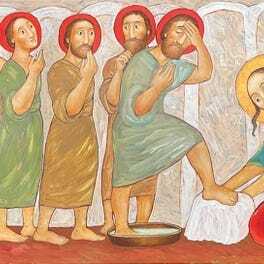
In his recent book, Divided We Fall, David French makes use of Jonathan Haidt’s book, The Righteous Mind: Why Good People are Divided by Politics and Religion. In fact, David French’s book reads like the account of what happens when people don’t read Jonathan Haidt’s book. Jonathan Haidt is a social psychologist who taught at the University of Virginia for many years and now teaches at NYU. The grandson of Polish refugees, he grew up a Reformed Jew, but reports that he began questioning religion two years after his bar-mitzvah and by the time he enrolled as an undergraduate he’d grown openly hostile to religion. Nonetheless, as a student he got taken with the role of morality in religion and its benefits for social cohesion, particularly as it related the evolutionary development of human beings.
In, The Righteous Mind, Haidt explains how human beings evolved to be tribalists. Under certain conditions, in light of larger unifying beliefs or events that bind us together across groups (think 9/11 or the Cold War), we need not be tribal, but tribalism is the norm into which we have evolved. Because we’re essentially tribal creatures, Haidt says our rational faculties evolved not to discover the truth about the world. Rather, our reasoning developed to persuade others— either to persuade others into our tribe or persuade others in our tribe that we too belong in the tribe. Our reasoning then, Haidt argues, is not a neutral weighing of facts and values. Our reason is instead post-hoc justification. We believe what we want to believe. We believe what our team, our side, our party, wants us to believe, and we then search out and find data to corroborate those beliefs after the fact.
This is why we are seldom moved by arguments from someone on the other side of the political spectrum from us. It’s why we’re so quick to assume the worst about someone in another tribe, and why we react with defensiveness or anger when presented with facts that do not comport with our beliefs— because it’s not about belief, it’s about belonging.
To the tribe.
Believing the beliefs are how we prove we really belong in our tribe.
“Human beings are tribalists who reason in order to justify themselves,” Haidt summarizes, “not to find the truth.”
Of course, this insight is not new nor is it unique to social psychology. Thomas Cranmer, the Anglican archbishop of Canterbury who wrote the Book of Common Prayer in the 16th century, expressed the same intuition about human creatures when he wrote, “What the heart loves, the will chooses, and the mind justifies.” This post-hoc justification is what Martin Luther meant by the bondage of the will.
Unlike Americans, Karl Barth liked to joke, “Christians have never believed in the freedom of the will.”
When you understand that we’re essentially, evolutionarily tribalists, says Jonathan Haidt, you can begin to appreciate how societies are inherently and incredibly fragile. Societies, after all, are groupings of tribes, and they require centripetal forces pulling us together that are stronger than the centrifugal forces of our respective tribes that pull us apart. It’s when the centrifugal forces of tribalism are stronger than the centripetal forces that bind us together, Haidt writes, that societies decline and eventually collapse into chaos and violence.
Here’s the thing—
If the social psychologists are correct, if we have evolved to be tribalists whose beliefs serve the purpose of justifying our belonging, then our national divisions and discord, our cultural hostility, and tensions, our exhausting Us. vs. Them reality is NATURAL.
Antagonisms are the evolutionary norm.
And, therefore, any transcending of them would need to be unnatural.
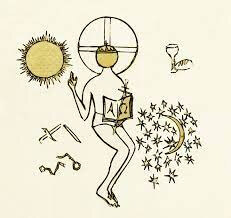
“Since you have encouragement in Christ, since you have comfort afforded by his love, since you share a fellowship in the Holy Spirit, get on it already! Mind the one thing with one love, one soul, and one mind…Mind among you that which is minded in Christ Jesus."
The one thing— to auto.
Unlike what Curly says to the Richie the Kid in City Slickers, for the Apostle Paul the one thing is not whatever you choose. And notice, Paul does not say mind the example of Christ Jesus. Nor does Paul say mind the teaching of Christ. No, Paul says, literally in the Greek, “Mind among you that which is minded in Christ Jesus.”
But what is the one thing minded in Christ Jesus?
The Christ hymn controls the thought of this passage and offers a clue, but Paul makes the mind of Christ explicit in his second letter to the Corinthians where he tells them we no longer regard anyone from a human point of view.
Why do we not regard anyone from a human point of view? “Because one has died for all,” Paul writes, “therefore all have died.”Because Jesus Christ has died for every sinner, every sinner has already died to and for their sin; therefore, we do not regard anyone with a human mind.
Barth puts it best:
“The one thing beside which there is no other, the one ultimate thing that no individual or tribe can play off against others…is the judging grace of God in Jesus Christ under which the Church stands.”
Grace— God’s redemption at Christ’s expense— is the one thing minded in Christ Jesus that we are to mind.
Grace— God’s loving mercy and unmerited pardon for sinners that is simultaneously God’s righteous judgment of sinners.
Grace— the justification not of the good but of the ungodly, which the Bible says is also, by Christ’s shed blood, the justice of God rendered upon sinful humanity.
For believers suffering discord and disunity, for Christians facing divisions that threaten to rupture, the Apostle Paul pleads for the Church to mind the grace of God in Jesus Christ above all else, with one mind and soul and love.
Now, mind you—
Minding the grace of God does not erase our differences on other matters.
Minding the grace of God relativizes our differences on other matters.
As Paul illustrates to the Galatian Church, because of the grace of God “There is no longer Jew or Greek, there is no longer slave or free, there is no longer male and female…” all those categories are gone in Christ Jesus.
The “one thing” is the law of grace.Commenting on this passage, Karl Barth writes:
“The divisions may end when we discover respect for each other, not on this ground or that, perhaps without any grounds, counter to every ground, simply because we are bidden when looking at our neighbor to think of the one thing— of grace— to see him, in his foolishness and wickedness, as a messenger [to us] of grace's sovereignty. Grace does live and move abstractly, not transcendentally…The strange, different, unintelligible subjective aspect of my neighbor is the garment in which the “one thing” meets me. The claim my neighbor makes on me— on my patience, attention, consideration, on my love— is the claim of the “one thing.” The disturbance on my island, which every neighbor first of all means for me, is disturbance by the “one thing” that I keep forgetting. We do not think this way, but this is what we must mind.”
Your neighbor is the garment in which the “one thing” meets you.
The grace of God, Barth says, is God’s alien work. That is, it does not come to us naturally. It comes to us as Jesus Christ, “who…being found in human form, he humbled himself and became obedient to the point of death—even death on a cross.”
For the ungodly.
In, The Righteous Mind, Jonathan Haidt calls the centrifugal forces of partisan politics “a national emergency.” He wrote that book over eight years ago.
Here’s the thing—
If the social psychologists are correct, if we have evolved to be tribalists, then the one thing, the unnatural and alien work of God’s grace in Jesus Christ, it isn’t simply what’s necessary for the Church and her unity. It’s also why Christ’s Church is necessary for the redemption of the world.
If all that nevertheless feels like more of a burden than you or the Church can bear, fear not, for it’s not on you. As the Apostle Paul declares, the Gospel of the “one thing” is not a message about God. It is rather the very present-tense power of God invading our broken and divided world.
“As surely then as admonition in Christ, as surely as encouragement of love, as surely as fellowship of the Spirit, as surely as heartfelt mercy truly exists among you, make my joy complete: by minding the one thing, with the one love, one soul, one mind never by any means assertive or conceited, but in humility one setting the other above himself; each not considering his own point of view but each that of the other.
Mind among you that which is minded in Christ Jesus.
(image from Chris E.W. Green)
 Get more from Jason Micheli in the Substack appAvailable for iOS and AndroidGet the app
Get more from Jason Micheli in the Substack appAvailable for iOS and AndroidGet the app
September 26, 2023
Don't Let Your Eyes Get Used to the Darkness

Tamed Cynic is a reader-supported publication. To receive new posts and all content, consider becoming a paid subscriber.
Here is last night’s session on Revelation 8-11.
And, since some of you asked, here is the (unedited!) transcript of our discussion.
Jason (00:01.169)
devotion candle too.
Kelly (00:02.938)
Do you?
Jason (00:04.524)
Josh sent it to me, act…
September 25, 2023
The Audacious Theology Behind Yom Kippur

Tamed Cynic is a reader-supported publication. To receive new posts and all content, consider becoming a paid subscriber.
Yom Kippur, the Jewish Day of Atonement, began at sundown last evening and ends today at dusk. It's been my experience that Christians know very much about Passover, since the links to the Passion story are explicit in the Gospels, but know very little about Yom Kippur and how the holy day interacts with and informs what the evangelists attempted to convey in their Gospel narratives. Another reason why Christians seldom consider Yom Kippur is that it's outlined in the Book of Leviticus, probably the book of Israel’s scriptures most neglected by the church.
Recovering the connection is key, however, because, though the Gospels locate Jesus’s crucifixion during the Passover, they nevertheless adorn their passion stories with allusions to the Day of Atonement.Jason Micheli's Blog
- Jason Micheli's profile
- 13 followers



